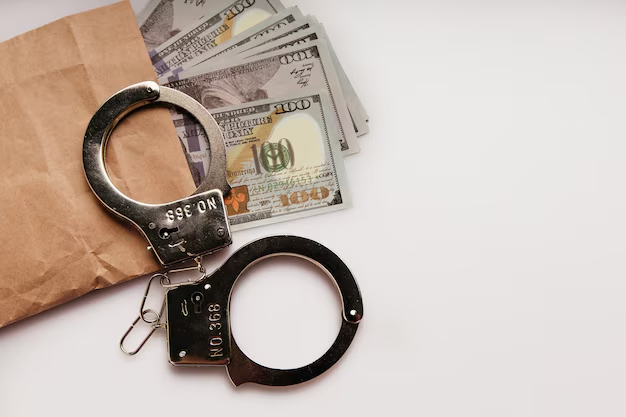Your Guide to Can You Get Arrested For Credit Card Debt
What You Get:
Free Guide
Free, helpful information about Credit Card Debt FAQ and related Can You Get Arrested For Credit Card Debt topics.
Helpful Information
Get clear and easy-to-understand details about Can You Get Arrested For Credit Card Debt topics and resources.
Personalized Offers
Answer a few optional questions to receive offers or information related to Credit Card Debt FAQ. The survey is optional and not required to access your free guide.
Can You Be Arrested for Credit Card Debt? Here’s What You Need to Know
When financial difficulties arise, one common concern is whether credit card debt can lead to arrest. This fear can overshadow the stress of debt management itself, leaving you uncertain about possible legal repercussions. Let's untangle this complex topic, exploring every angle you need to consider.
Understanding Debt and the Law
The worry about facing arrest for credit card debt often stems from misunderstandings about how debt collection works. In most places, debt is a civil matter, not a criminal one. Here’s a closer look at why this distinction matters:
Civil vs. Criminal Cases
- Civil Cases: Involves private disputes between people or organizations. Credit card debt typically falls under this category.
- Criminal Cases: Govern actions considered an offense against the state or public. Non-payment of debt doesn’t typically fall here.
What This Means for Your Credit Card Debt
Being unable to pay your credit card debt doesn’t put you directly at risk of arrest. Creditors can take legal action against you, but this usually leads to civil suits aimed at recouping their money.
Possible Legal Actions by Creditors
When you default on credit card payments, creditors have several courses of action at their disposal:
Filing a Lawsuit
Creditors may file a lawsuit seeking the repayment of the debt. If they win, the court issues a judgment, which might lead to:
- Wage Garnishment: Your employer may be directed to deduct a portion of your wages to satisfy the debt.
- Property Liens: Creditors may place a lien on your property, which could complicate selling or refinancing.
- Bank Account Levies: Creditors might gain the right to withdraw funds directly from your bank account.
Debt Collection Practices
While creditors can be aggressive, debt collectors must adhere to specific regulations:
- Fair Debt Collection Practices Act (FDCPA): Protects you against harassment and unfair practices by collection agencies.
Important Reminder
You can’t be arrested for non-payment. However, if a creditor sues you and you ignore court orders, such as failing to appear in court or comply with a judgment, there could be consequences that might include possible arrest for contempt of court.
Dealing with Debt Collectors
Knowing how to handle debt collectors is crucial:
Recognizing Harassment
Understand your rights under the FDCPA, which include:
- Limited Communication: Collectors can only call during reasonable hours.
- Prohibited Practices: Threats of arrest or violence are illegal.
Responding Strategically
If approached by a debt collector:
- Request Verification: Always ask for proof of the debt amount and ownership.
- Negotiate Politely: Aim for feasible payment plans or settlements.
- Keep Records: Document all communications to protect yourself.
Practical Steps to Manage Credit Card Debt
Debt management is essential to avoid escalating issues:
Develop a Payment Strategy
- Budget Analysis: Understand your income vs. expenses.
- Prioritize Debts: Pay off high-interest debts first to minimize costs.
Consider Debt Relief Options
For more severe situations, explore:
- Debt Consolidation: Combine debts into a single payment, often with a lower interest rate.
- Credit Counseling: A counselor can help you decipher options and implement a plan.
- Bankruptcy: While a last resort, it offers a path to discharge certain debts.
Seek Professional Advice
If unsure about how to manage your debts, consulting a financial advisor or an attorney can clarify your best course of action.
Moving Forward with Confidence
Understanding your rights and obligations can alleviate fears and massively impact how you handle credit card debt.
Key Takeaways 📌
- You cannot be jailed: Simply for not paying your credit card debt.
- Legal actions: Include lawsuits but not criminal charges for non-payment.
- Debt collector harassment: Is illegal and should be reported if encountered.
- Practical debt management: Includes budgeting and exploring relief options.
Strategic Tips for Debt Management 💡
- Track Finances: Use tools or apps to keep an eye on all your expenditures.
- Communicate: Don't ignore creditor calls; work toward a solution.
- Plan Ahead: Look for signals of potential financial pitfalls and adjust accordingly.
Recognizing your vulnerability but also your agency empowers you to approach debt with a clear, balanced mindset. Keep these insights in mind as you navigate financial challenges, safeguarding your personal freedom and financial health.
Navigating credit card debt can be stressful, but understanding the legalities helps you focus on effective management rather than fearing the worst. Empower yourself with knowledge, seek the right assistance, and approach your financial challenges proactively.
What You Get:
Free Credit Card Debt FAQ Guide
Free, helpful information about Can You Get Arrested For Credit Card Debt and related resources.

Helpful Information
Get clear, easy-to-understand details about Can You Get Arrested For Credit Card Debt topics.

Optional Personalized Offers
Answer a few optional questions to see offers or information related to Credit Card Debt FAQ. Participation is not required to get your free guide.


Discover More
- Am I Responsible For My Husband's Credit Card Debt
- Are Credit Cards Unsecured Debt
- Can a Pension Be Garnished For Credit Card Debt
- Can Credit Card Debt Be Forgiven
- Can I File Bankruptcy For Credit Card Debt
- Can I Go To Jail For Credit Card Debt
- Can I Negotiate Credit Card Debt
- Can I Negotiate My Credit Card Debt
- Can I Still Use My Credit Card After Debt Consolidation
- Can I Take a Hardship Withdrawal For Credit Card Debt
